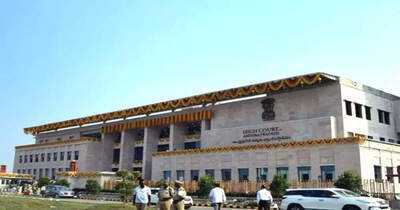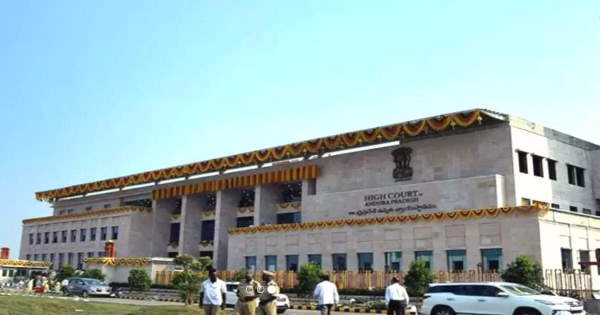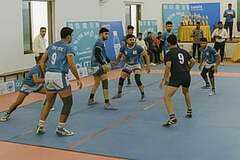
 High Court Ruling on Transgender Rights
High Court Ruling on Transgender Rights
The Andhra Pradesh High Court has ruled that denying a transgender woman the designation of 'woman' is unconstitutional. This decision was made by Justice Venkata Jyothirmai Pratapa on June 16.
The court stated that a trans woman who is married to a man has the right to file a criminal complaint for cruelty and harassment against her husband and his family under Section 498A of the Indian Penal Code.
This legal provision addresses the issue of cruelty inflicted on a married woman by her spouse or his relatives.
The ruling came during the hearing of petitions aimed at dismissing a criminal case initiated by a trans woman against her husband, his parents, and a relative.
According to the court, denying a trans woman the status of a 'woman' based solely on her reproductive abilities perpetuates discrimination and violates Articles 14, 15, and 21 of the Constitution.
The court described such reasoning as 'deeply flawed and legally impermissible.'
Article 14 guarantees equality before the law, while Article 15 prohibits discrimination based on various factors, including gender. Article 21 ensures the protection of life and personal liberty.
The ruling emphasized that a narrow definition of womanhood based on reproductive capacity undermines the Constitution's commitment to dignity, identity, and equality for all individuals, regardless of gender identity.
The trans woman married her husband in 2019 following Hindu customs. She later reported to the Ongole Police that her husband abandoned her and sent her threatening messages.
The police subsequently filed charges against her husband and his family for cruelty under Section 498A and for violations of the Dowry Prohibition Act of 1961.
In their attempt to dismiss the criminal case, the husband and his family contended that the complainant, being a trans woman, could not be classified as a 'woman' under the anti-cruelty law, arguing that her inability to bear children disqualified her from being considered a woman in the 'complete sense.'
In its June 16 ruling, the High Court referenced several significant Supreme Court decisions, including the 2014 National Legal Services Authority v Union of India case, which affirmed the right of transgender individuals to self-identify their gender.
The court also mentioned a 2023 Supreme Court ruling regarding same-sex marriage, noting that while a universal right to marry was not granted, it recognized that transgender individuals in heterosexual relationships have the right to marry under current laws.
Justice Pratapa concluded that the complainant, as a trans woman in a heterosexual marriage, should not be denied her right to file a complaint against her husband and his relatives.
However, the High Court remarked that the allegations of cruelty made by the woman were vague and lacked specific details. It determined that allowing the criminal proceedings against the husband and his family to proceed would constitute an abuse of the legal process.
Consequently, the court quashed the criminal proceedings against the accused parties but clarified that a trans woman in a heterosexual marriage is entitled to protection under Section 498A of the Indian Penal Code.
-
Sportvot x FPJ: Ahmedabad City & Aanand Register Wins In Gujarat Kabaddi League 2025

-
Sportvot x FPJ: MEGA Sports Lift Trophy After Defeating Thane City By 2-0 Margin To Win Maestro Youth League 2025

-
Football fans form 'citizen patrols' to block migrants return as tensions rise

-
Madhya Pradesh: Amid Tribal Protests, Government Puts Sardar Patel Sanctuary Plans On Hold

-
Lady Gabriella Kingston tries to stay cool as she makes rare appearance at Wimbledon
